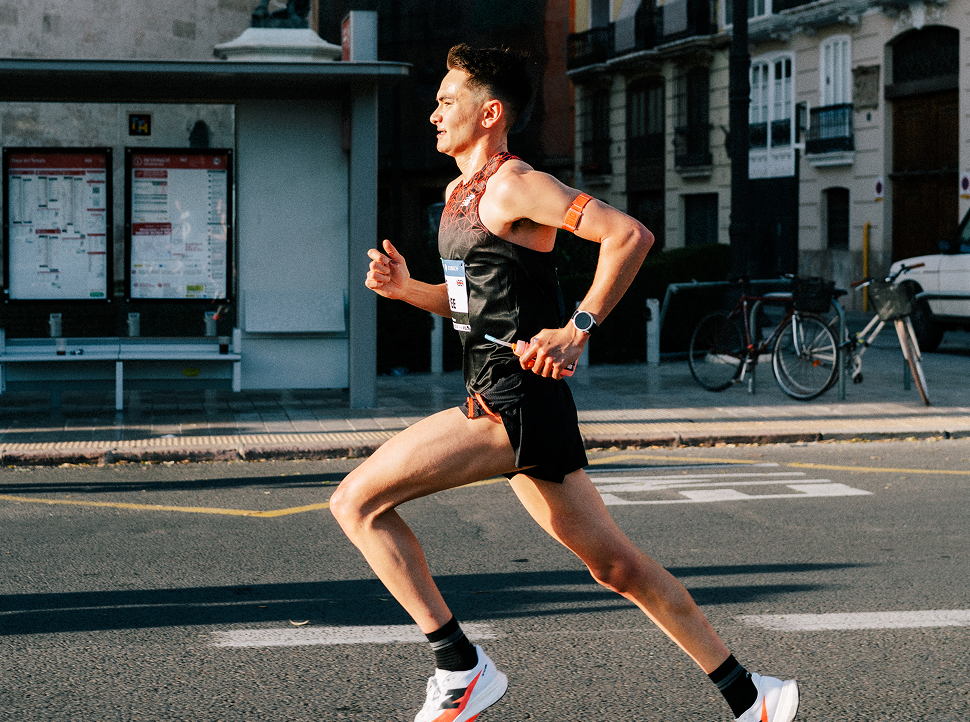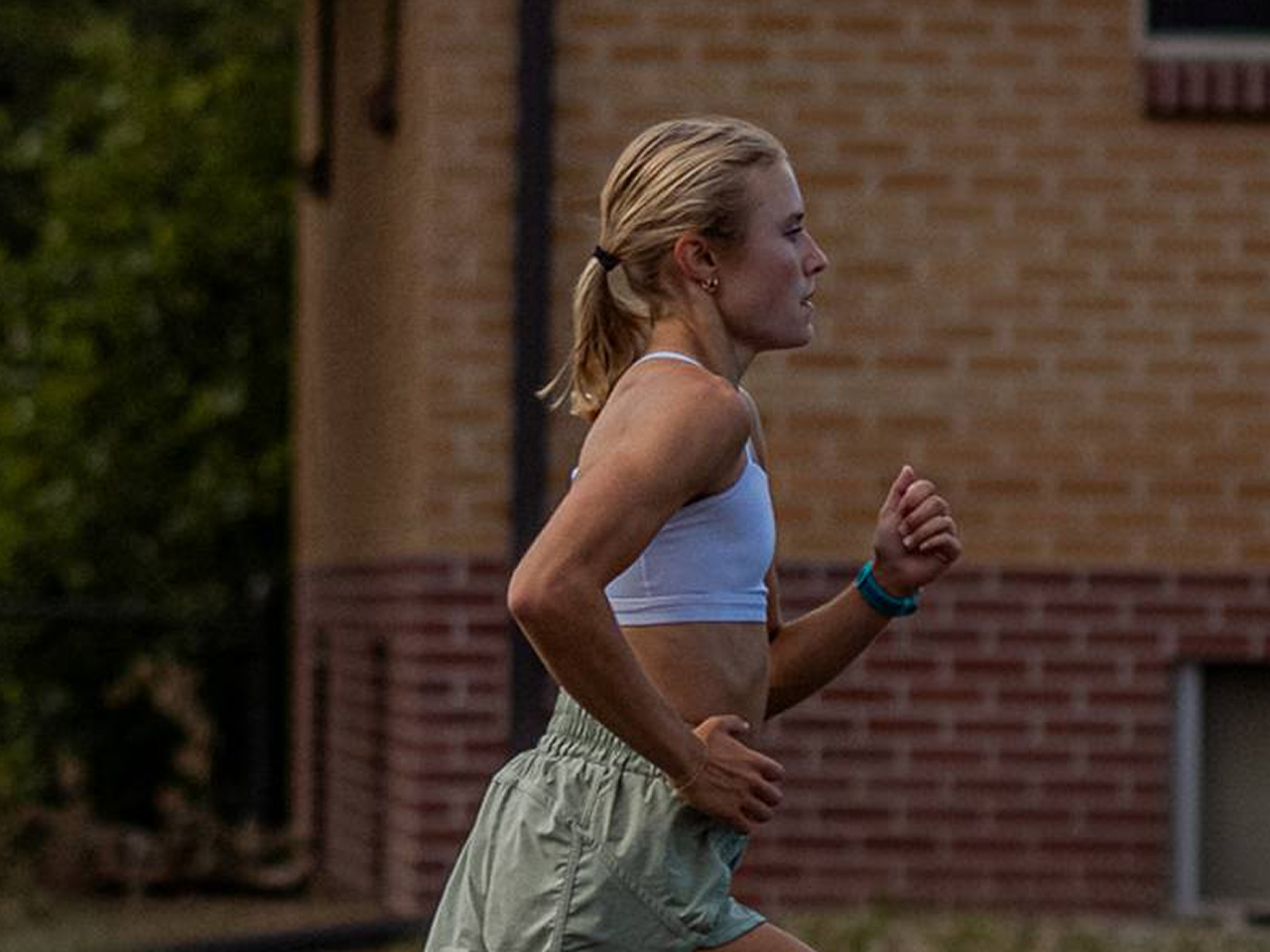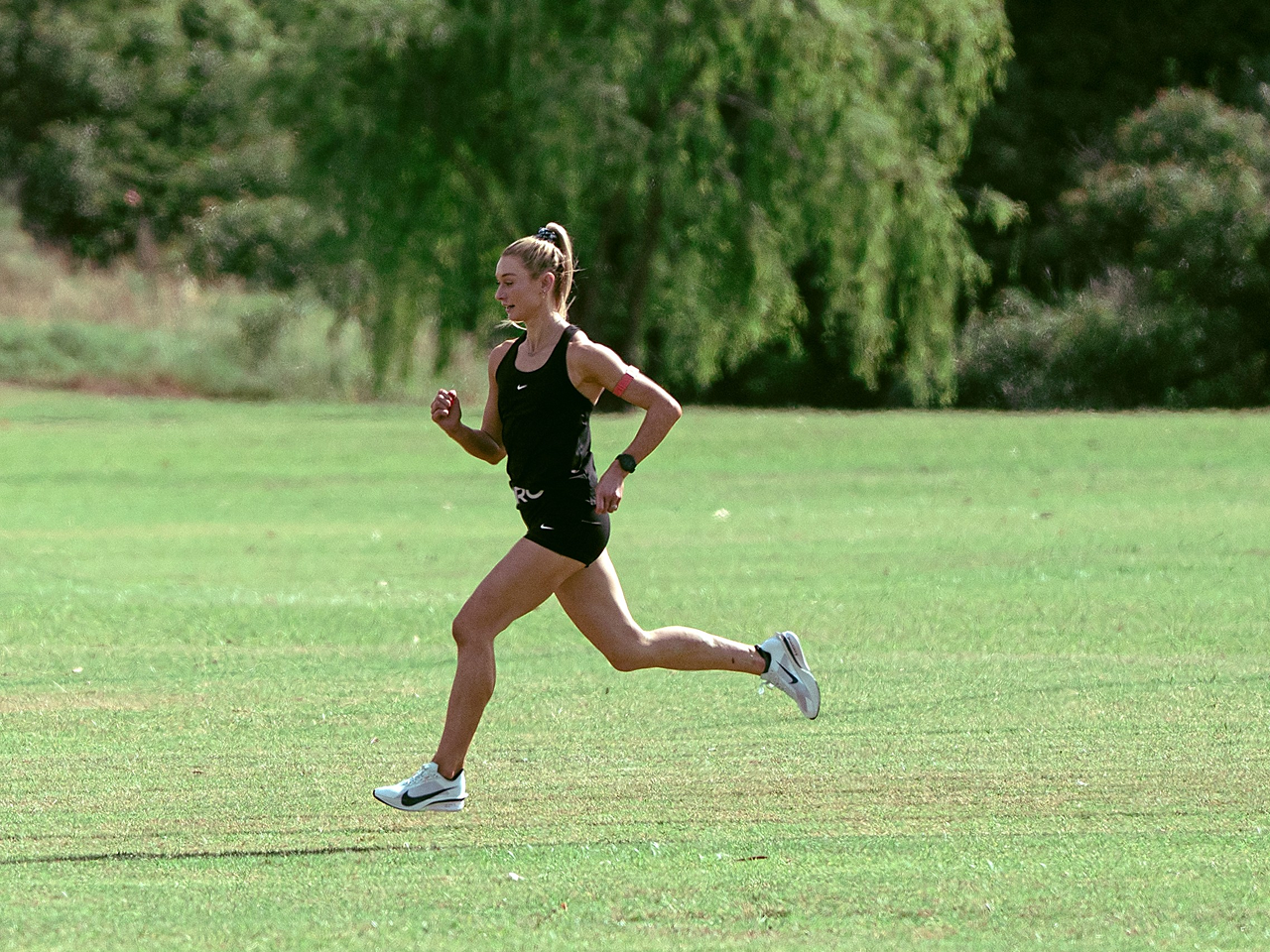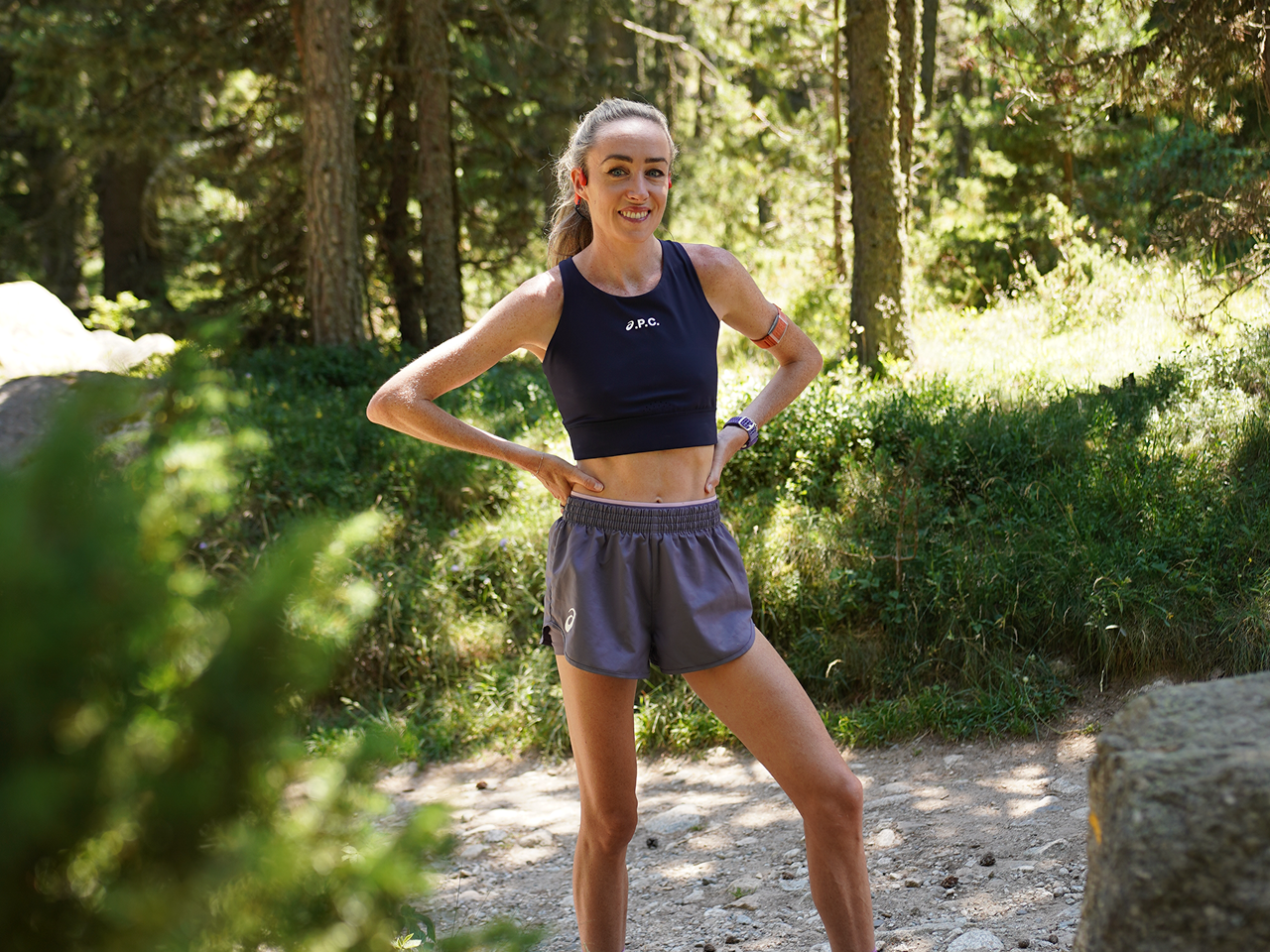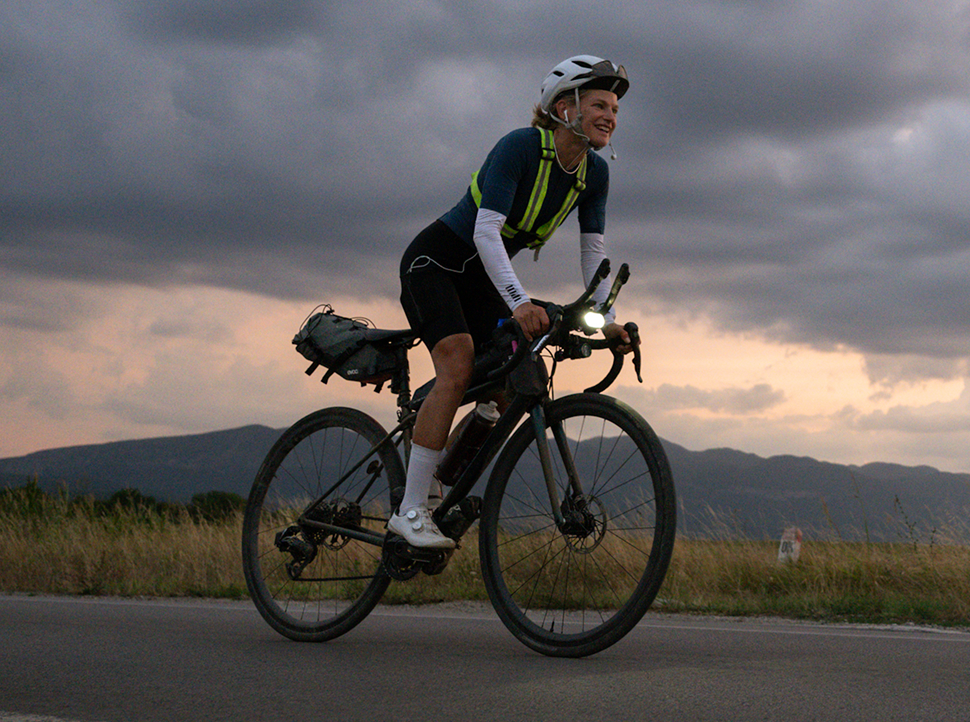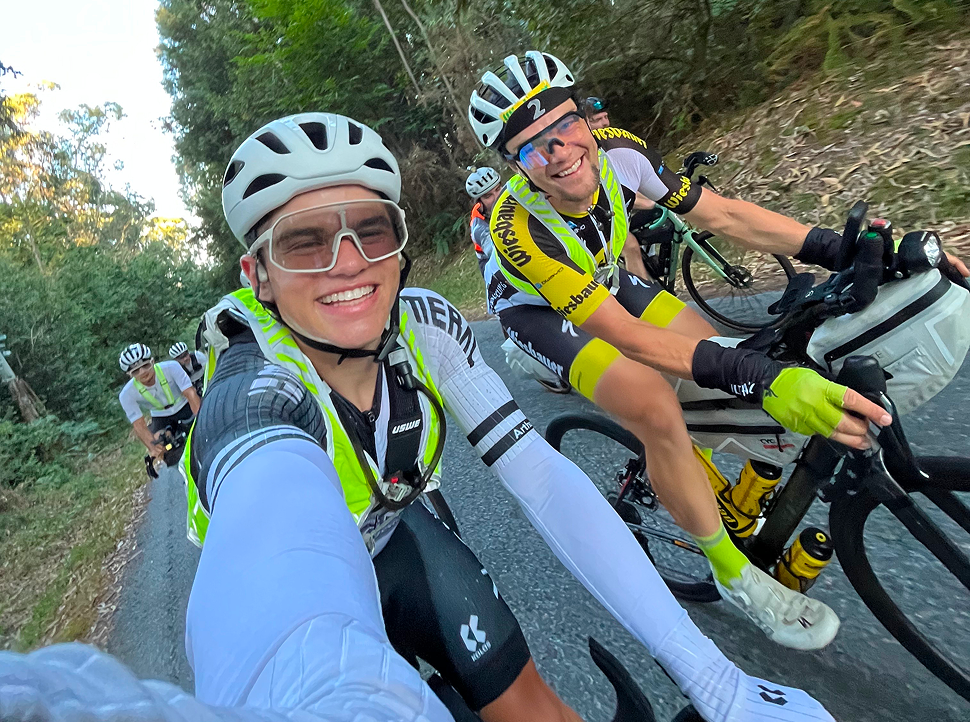Whether you're running one for the first time or racing to hit a qualifying time, marathons are hardly ever perfect and require flexibility. Just ask pro runner and COROS athlete Parker Stinson, who recently placed 5th at the Ottawa International Marathon in a blazing time of 2:13:57.
While Parker's personal best clocks in at 2:10:53, and he currently feels like he's in PR shape, Parker says he's thrilled with his performance because the weather conditions were not ideal. With a high of 83°F, Parker would unlikely run a personal best. Instead, Parker focused on being patient, staying hydrated, and trusting his fitness, which allowed him to go from 21st place mid-race to 5th overall and beat runners who, on paper, should have won him.
Read below to see the details of Parker's marathon training and race data and hear his advice on running a marathon in the heat.
Parker's Build to The Ottawa Marathon
No marathon build is perfect. Parker says he had a lot of challenges during this build. He got sick twice and had to pull out of the Prague half-marathon because he didn't feel ready. Mentally, Parker indicates it was a challenge at times because his workouts were tough at altitude and didn't always go as planned.
However, Parker's COROS data showed that he was building base fitness and that his workouts produced positive results. In the four months leading up to Ottawa, Parker's EvoLab metrics showed a steady increase in base fitness as he logged longer, more intense workouts.

Parker's base fitness steadily increased over four months after racing the Houston Marathon in January. The light blue line and the associated spikes highlight Parker's workouts and load impact, indicating that he was putting more and more impact on his body, resulting in increased fitness.
While Parker works closely with his Roots Running coach, he uses his COROS data to check in and track progress. "Leading up to [Ottawa] I would check in every week or so, and I could say, cool, the workload is there, the intensity is there, the base fitness is rising," he explains. "And I already knew that, but I got quantifiable data. And that's all I really wanted to see trending towards Ottawa."
Parker's Top 4 Tips on Racing A Marathon in the Heat
There have been numerous studies on how temperature affects running performance, and most indicate that the perfect temperature lies between 44° F and 59° F (7–15° C). But in reality, you're rarely going to get a perfect day, so preparing physically and mentally is essential.
Expose your body to different stressors during training, including heat.
You want to be as prepared as possible on race day, so you must be ready to run in any climate. Although most of Parker's build took place during colder months in Boulder, CO, he did spend some time in warmer temperatures, such as in his hometown in Texas. In the weeks leading up to Ottawa, Boulder got scorching days around 80° F, and Parker had to finish his workouts regardless.
Nail down your fueling and hydration strategy well before the race.
Having a fueling strategy is essential, but it's especially important when it's hot out.
"It's just like having a racing strategy," says Parker. "You have to plan out your fuel and bottles along the course and ensure you're getting enough electrolytes."
Parker drinks a balance of water and electrolytes the night before his race, about a glass or two. "The moment I wake up in the morning, I pound electrolytes because I'm dehydrated from sleeping, and I want to get my body back to a high level as quickly as possible. I take a liquid carb solution every 5k, and during hot days I dump a cup of water on my back and neck every 4 miles."
Keep your body cool before the race starts.
One of the biggest mistakes you can make when racing in hot weather is expending too much energy during your warm-up or staying in the sun while you wait for the race to start. You want to be awake and energized, but you don't want your heart rate to be too high and your core temperature to stay cool. The body can heat up quickly, rising above 100° F in the sun during strenuous exercise. The hotter your core temperature, the higher your heart rate and effort, and the more likely you'll slow down your pace. Some runners will use ice packs on their necks and back to cool down before toeing the line.
Interested in measuring your body temp? All COROS watches support the CORE Body Monitoring Temperature Sensor, which provides a real-time display of the core body temperature, maximum core body temperature, minimum core body temperature, and average core body temperature.
Adjust your pace expectations and trust your fitness.
Scientifically speaking, runners slow down 1-5 seconds per mile for each 1° C (1.8° F) higher than 59° F. This range can be affected by fitness level, gender, and elevation. When Parker toed the line that morning for the Ottawa Marathon, it was already 60° F, and the sun and heat were only getting more intense. Although his COROS race predictor showed faster projected times, he knew Ottawa wouldn't be a PR day but a great day to test his racing strategy, patience, and fitness under hot conditions.
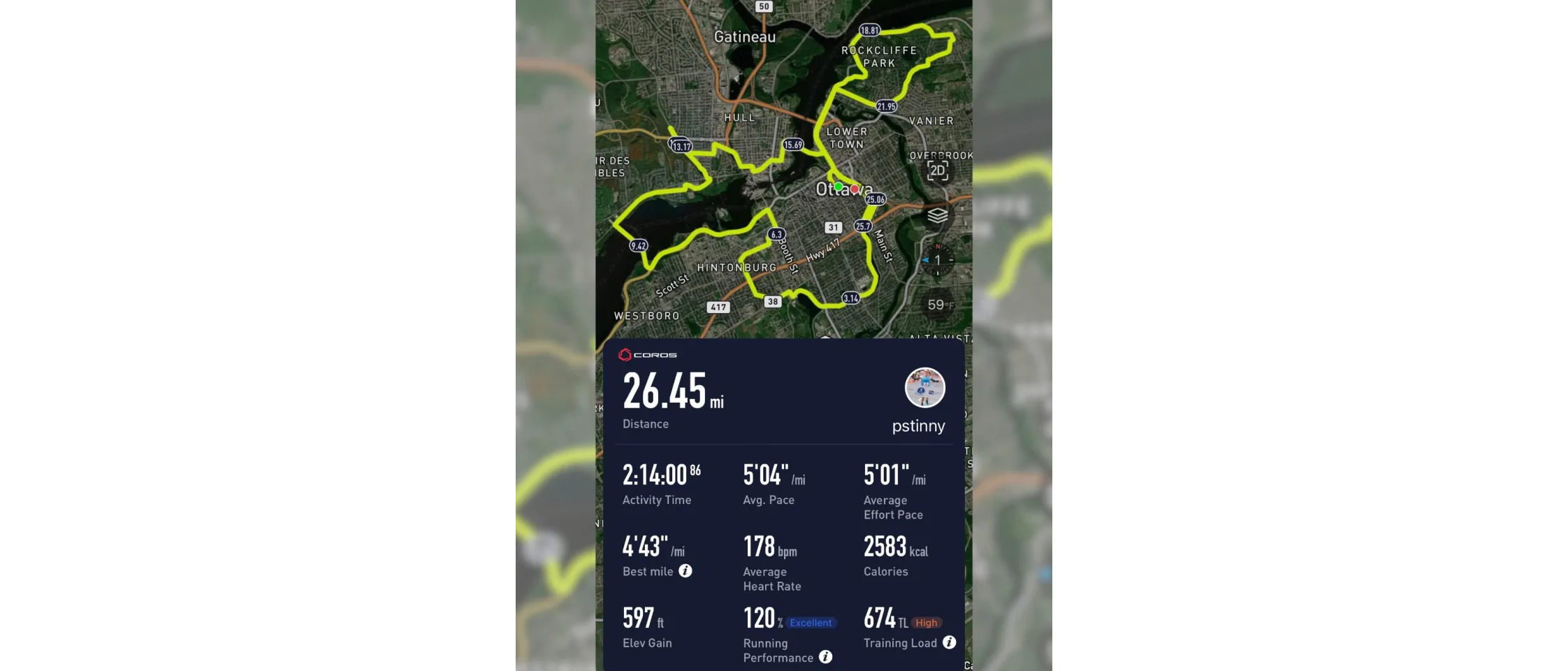 Parker's Ottawa Marathon race data via the COROS app.
Parker's Ottawa Marathon race data via the COROS app.
"Do I wish I could come to Ottawa and run a 2:09, 2:10 in perfect conditions? A hundred percent, but that's different from the cards being dealt right now. So the positive part is, here's another opportunity to get confidence and run well in warm trial conditions."
What It Will Take to Make an Olympic Team
The Olympic Trials will take place late morning in Orlando, Florida, next February, which means it will be hot and humid. This gives Parker an advantage since he's now raced two marathons in similar conditions.
Parker is currently ranked 12th in the U.S. for male marathoners. Although he is definitely one of the favorites for the Olympic Trials, the competition is still steep, with men who have run 2 minutes faster than him.
"That's the beauty of the Olympic trials. It always goes differently than it's planned. And part of what it's going to take to make the team is something that I'm already working on. Houston was warm. It was not good conditions, and I ran great and beat people I shouldn't have beat because they couldn't handle that."
Looking for a marathon training plan? Check out COROS' 12-week programs, designed for runners looking to run a 2:45 marathon up to a 4:30 marathon. You can follow Parker Stinson's marathon training at @_parker_stinson_ as he continues to fine-tune his workouts for the 2024 Olympic Trials.

/filters:quality(90)/fit-in/970x750/coros-web-faq/upload/images/c16960b00e215049eb7a00d11559bba2.png)
